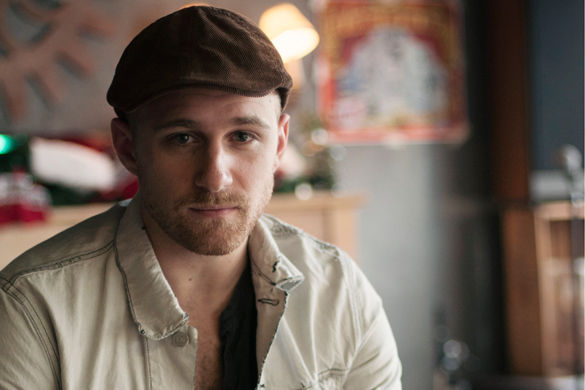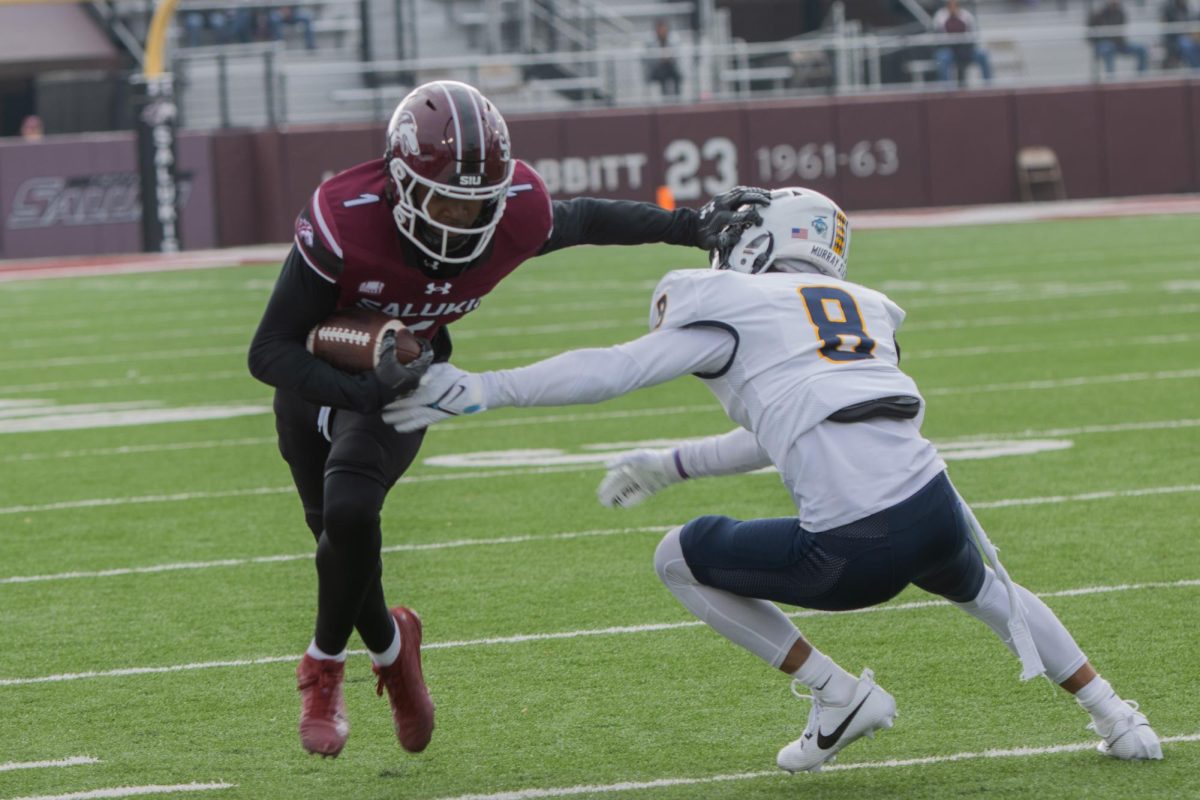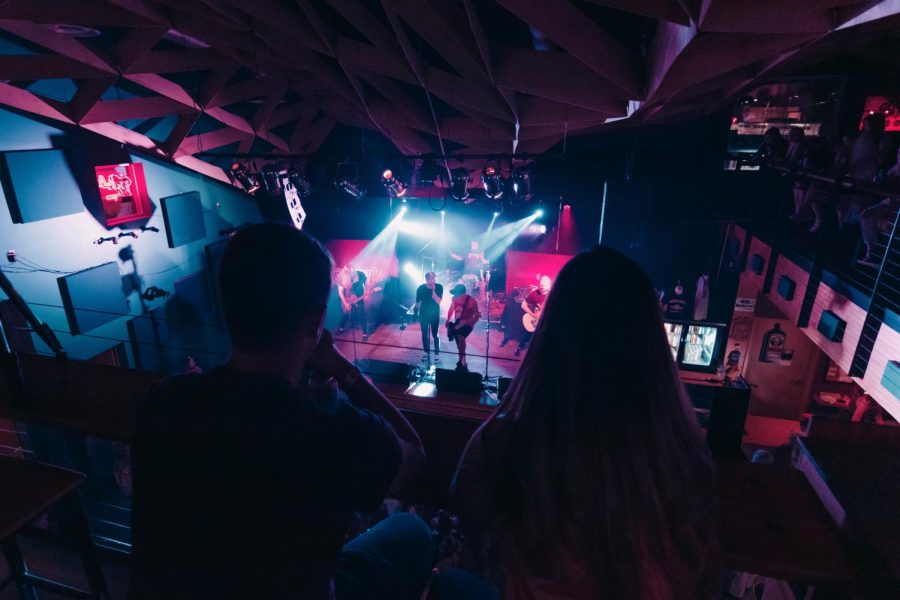Sam Lee talks the Internet, early struggles and the Grammy Academy

July 8, 2015
Samuel Lee, a singer/songwriter and Denver native, will be setting the stage at 7 p.m. Thursday at Shryock Auditorium for this week’s installment of the Sunset Concert Series.
Currently residing in Nashville, Tenn., Lee has been creating a southern rock influenced sound and drawing inspiration from both the trials and happy moments in life.
Although Lee has had a wide variety of backing musicians throughout his career, he will be bringing a group of his most familiar acquaintances for the Shryock performance, he said.
Advertisement
The Daily Egyptian had the opportunity to talk with Lee about his musical journey thus far as he prepares for his first show in southern Illinois.
How did you get started with music?
I started playing super young like so many people did, with lessons and that kind of thing. I started taking it seriously when I was around 12 years old. I started learning the guitar and fell in love with all the classic rock ‘n’ roll stuff that my dad and my older brother used to listen to in the car. I got really sad when I was a kid for a very long time and rock music kind of momentarily made it better. It became the thing that made my day okay on a pretty regular basis. I also fell in love with all the aesthetic of it, rock stars and modern day heroes. It’s all very romantic and it’s easy for a sad, young misfit kid to sit down and fall in love with.
What made you sad when you were young?
At the risk of it turning into a therapy session, it was family stuff. There was a lot alcoholism and drug abuse in my family. I’m a several years recovered drug addict and alcoholic and there was a lot of whiplash and backlash from that as a kid. Everybody has their baggage and it doesn’t really matter what happened to me or anyone else, but at the end of the day, when you’re hurting, you’ve got to find the thing that makes it not hurt so bad. For me, I was lucky that I could just listen to a rock record in my bedroom and, all of a sudden, things weren’t so bad.
What kind of records would you listen to?
It really ran the gamut. My older brother is 12 years older than I am and he used to do this thing with me where he would take me out for a drive and he’d quiz me on whatever the band was playing at the time. A lot of his favorite stuff were things that were popular in the ‘90s, like Counting Crows, The Wall Flowers live and stuff like that. I remember Pink Floyd being an early favorite of mine. I think I really just liked the name, but eventually I really got into the music and David Gilmore is one of my favorite guitar players of all time, maybe my favorite. My dad used to listen to a lot of singer/songwriters. He’d listen to James Taylor, Cat Stevens and Paul Simon, and then he listened to a lot of the Rolling Stones and Creedence Clearwater Revival and that kind of thing. That kind of stuff has really heavily influenced what I do, all those old rocker guys that really pioneered that American rock ‘n’ roll sound … Along the way, I’ve really picked up a lot of soul music and a lot of blues music as well, which has really colored the last couple years of my career.
Advertisement*
Your website is very well managed. Do you feel the Internet has been an impactful tool for you to get your music out there?
You know, it’s the hot-button topic of our time and the fact is, I think, it’s done more harm than good. I think for a really long time we relied on curators and pacemakers to tell us what was worth listening to. They were record labels, they were radio DJs and they were rock critics. We relied on them to sort through all the bullshit and get us the good stuff and find the geniuses. Those people still exist, but we’ve stripped them of their power. Anyone can shout about the band they like or don’t like and there are so many voices in the chorus now that they hardly matter anymore. The same thing is true with musicians. There’s so much music, not to say there wasn’t as much music before … Whether its just because of our time or whether its more noticeable because anyone can put their stuff up on the Internet for consumption, it just seems like we’re flooded and I think the really good stuff gets lost. On the other side of that, there is a whole lot more room for a whole lot of good stuff.
You also became a member of the Grammy Academy. How did that come about?
The fact is, we rely on the Grammy Academy to make a lot of decisions on who is worth listening to and I got really tired of being told that a lot of the people I didn’t think were worth listening to were good. There’s a whole lot of stuff out there I don’t really care for and there’s a whole lot of stuff that I do that isn’t getting recognized. One voice isn’t enough, but it’s better than nothing and something I realized when I joined the academy was that there was a whole lot more people in the academy like me than there are people not like me. There are so many people that are a part of the academy interested in getting good music into the public eye. There are a lot of people that have become national things because they were nominated for a Grammy and nobody knew about them before hand. It’s a wonderful organization … there is also an offshoot of the academy called MusiCares and they help musicians and artists when they are in need. So, sometimes that means paying a musician’s rent when he can’t and sometimes it means putting a guy in rehab because he can’t get his drug problem under control or, if he’s fresh out of rehab and he’s got a tour, putting somebody on the road with him to keep them company and keep them in line. My first encounter with them and the reason why I started looking these things up on the Internet in the first place was I was playing a festival in Fort Collins, Co., and backstage there was a MusiCares safe room that was a place where people didn’t want to partake in all sorts of stuff backstage could go to the safe room and we would have Alcoholics Anonymous meetings there.
Advertisement








